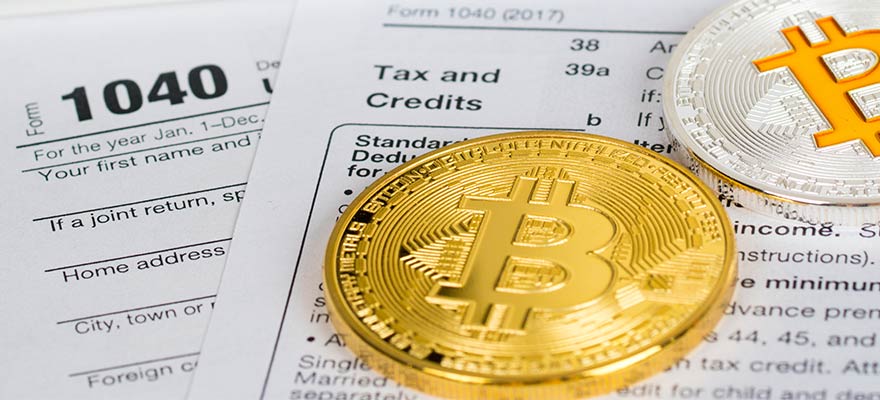Singapore is often cited as a crypto haven because of the country’s taxation laws. As per the rulings of the Inland Revenue Authority of Singapore (IRAS), residents aren’t liable to pay any taxes on capital gains. This can include the sale of shares, properties, and crypto assets.
However, this doesn’t mean that all crypto-related proceeds are free from taxation. The IRAS examines the purpose for which crypto assets are being used before determining the nature of the resulting income.
In order to do so, crypto assets have been broadly classified into three different categories: payment tokens, utility tokens, and security tokens. Each category of token serves a unique purpose and is addressed accordingly from a taxation standpoint.
Here’s a look at how different crypto-related activities are subject to Singapore’s tax laws.
Purchase and sale of cryptocurrency
Up till 2020, the sale of payment tokens such as Bitcoin and Ethereum was subject to Goods and Services Tax (GST). Buyers had to bear this additional cost, which made it unfavourable to purchase from a Singapore-based exchange.
However, Singapore has since revisited these laws. The IRAS now recognises that payment tokens shouldn’t be treated as goods or a service because they primarily serve as a medium of exchange. In light of this, crypto exchanges which offer payment tokens no longer need to charge GST on sales.
The sale of utility tokens might be subject to GST if the tokens are designed to be vouchers. For example, consider an F&B company which issues NFTs that can be used to redeem a meal. The company would have to charge GST as per the IRAS’ rules on treatment of vouchers.

If a buyer were to resell their NFT for a higher price, they would have to record their gains as income and pay taxes on those as well.
Other forms of utility tokens — such as those used as virtual currency in crypto games — are treated similarly to payment tokens. They are exempted from GST as they are often used as a medium of exchange.
The sale of security tokens isn’t subject to GST either, although not for the same reason. Security tokens are classified as financial services which represent a share in a company or a debt instrument. Such services are exempt as per the GST act.
Holding cryptocurrency as an investment
As an extension of the previous subheading, crypto gains might be taxable depending on why the underlying assets were acquired.
Factors such as duration of holding and frequency of trading examine whether the holder purchased crypto assets for their intended use or for a profit-making purpose. In the latter case, the gains would be taxable as investment income. This applies for all three categories of crypto assets.

For example, if one were to make profits through arbitrage trading using Bitcoin, they’d be liable to pay taxes on their gains. On the other hand, if Bitcoin were used as a mode of payment or as a long-term investment, any profits could be recorded as capital gains.
The same goes for utility tokens. One might purchase AXIE tokens to play the online crypto game, Axie Infinity. Over time, the token could go up in value and the holder wouldn’t have to pay taxes on the profits. However, if the tokens were purchased as part of a speculative trade and offloaded the very next day, this would not be classified as a capital gain.
There are no objective standards which separate capital gains from investment income. A range of considerations must be applied on a case-by-case basis to determine which category one’s crypto profits might fall under.
Payment for goods or services
When cryptocurrency is being accepted as payment for goods or services, tax considerations apply as per usual. GST and income tax is to be paid based on the market value of the goods or services being offered.
The same applies for individuals who receive salary or commissions in the form of cryptocurrency. They are required to pay income tax based on the value of their services, as calculated in fiat money.
If the received cryptocurrency is then exchanged for fiat money, any realised gains (or losses) must also be recorded at the prevailing rate of exchange. These might be taxable depending on whether they are perceived to be capital gains or investment income.
Mining cryptocurrency

Crypto mining in Singapore is subject to taxation if the miners are actively using it as a source of income. This is defined by the IRAS as a a ‘habitual and systematic effort to make a profit from the activities’.
On the other hand, those who engage in mining on a recreational basis aren’t liable to pay taxes when they dispose their earned crypto assets.
Airdrops
Airdrops are a common marketing strategy used by blockchain companies to promote their token and incentivise usage. This involves giving away, or ‘airdropping’ tokens to the wallets of selected users.
In Singapore, the recipients of airdrops aren’t liable to pay taxes upon disposal of the tokens. However, this is contingent on the requirement that the tokens are given away without any compensation.
Often times, companies might require users to follow their social media accounts or invite friends to their Discord channel in order to receive an airdrop. In such cases, the amount received might be subject to income tax.
Initial coin offerings (ICOs)
ICOs are a way to raise funds from the public. A blockchain startup will often issue its token for the first time, in exchange for existing payment tokens or fiat money. The proceeds from an ICO might be taxable depending on the type of token which is issued.
The issuance of payment tokens might be subject to taxation depending on their specific nature. The tax guide released by the IRAS doesn’t detail the considerations which might inform such a decision.
In the case of utility tokens, receipts are classified as deferred revenue. This is because the tokens offer access to an upcoming product or service. Thus, taxes only need to be paid once the revenue has been earned.
Similar to other traditional securities and investment assets, the proceeds from the issuance of security tokens aren’t taxable at all.
Taxation on cryptocurrency
In countries such as the US and UK, capital gains taxes can be as high as 20 per cent. Compared to that, Singapore remains a crypto haven for everyday investors.
That being said, it’s important not to equate cryptocurrency with a notion of ‘zero tax’. In most cases, tax obligations comes down to the purpose for which crypto assets are being used.
As such, investors must do their due diligence before deciding where to put in their money.
Featured Image Credit: Finance Magnates










